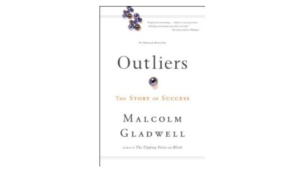Higher education plays an indispensable role in today’s fast-paced, knowledge-driven society. It’s more than just earning a degree; it’s about expanding intellectual horizons, growing personally, and unlocking doors to countless opportunities.
As we dive into this, let’s unravel the myriad benefits of higher education.
Higher Education Programs: A World of Opportunities
The world of higher education is as vast as it is diverse, offering an abundance of avenues to quench the thirst for knowledge. Traditional university degrees such as bachelor’s, master’s, and PhDs provide a well-rounded education that forms the bedrock of numerous professions.
Vocational and technical programs, in contrast, equip students with practical skills tailored to specific industries. But amidst this, eLearning has gained widespread popularity, given its convenience and flexibility. Online learning has proven remarkably beneficial for working professionals from various sectors and industries, especially healthcare. Nowadays, almost every healthcare worker can enroll in online programs to expand their academic credentials. For instance, nurses seeking to climb the corporate ladder can pursue advanced certification programs without compromising work. Those possessing master’s can opt for post masters NP certification programs online to land higher roles. Similarly, other healthcare professionals can also benefit immensely from online programs to accelerate career growth.
Now, let’s explore higher education’s tangible and intangible benefits in our personal and professional lives.
- Expanded Knowledge Base
Higher education immerses individuals in a vast sea of knowledge, fostering an insatiable curiosity and a thirst for wisdom. It goes beyond simply providing information; it encourages exploration and critical thinking.
Through various courses, students explore diverse disciplines – from history and literature to science and philosophy – developing an expansive knowledge base that allows individuals to view the world through multiple lenses, broadening their understanding of various cultures, ideologies, and perspectives. As they acquire knowledge, they gain a deeper appreciation for the world’s complexities and develop a well-rounded outlook.
- Improved Problem-Solving and Critical Thinking Skills
Higher education is instrumental in honing problem-solving and critical-thinking skills. The rigorous coursework challenges students to analyze complex issues, evaluate evidence, and develop logical arguments.
Through interactive classroom discussions and collaborative projects, students learn to approach problems from different angles, consider alternative solutions, and make well-informed decisions. These skills extend beyond the academic realm and become invaluable in navigating the complexities of the professional world, tackling real-life challenges, and finding innovative solutions to pressing issues.
- Enhanced Communication Skills
Effective communication is indispensable to successful personal and professional interactions. Higher education provides abundant opportunities for students to refine their communication skills. Whether presenting research findings, participating in group projects, or engaging in classroom debates, students learn to articulate their thoughts clearly, express their ideas persuasively, and listen actively to others.
Through constructive feedback and practice, they become adept at adapting their communication styles to different audiences, fostering mutual understanding, and building positive relationships in various settings.
- Increased Employment Opportunities
Statistics consistently reveal that higher-education individuals are more likely to secure employment than those without such degrees. According to statistics, in 2020, the unemployment rate for individuals with a bachelor’s degree was significantly lower than for those with only a high school diploma.
Higher education equips students with specialized knowledge and skills relevant to their chosen fields. Employers value the expertise and competence gained through rigorous academic training, making degree holders attractive candidates for various career opportunities. Whether engineering, healthcare, business, or arts, higher academic credentials open doors and expand professional growth and development possibilities.
- Higher Earning Potential
Alongside increased employment opportunities, higher education often correlates with higher earning potential. Economic studies consistently indicate that individuals with higher education tend to command higher salaries throughout their careers.
The specialized knowledge and skills acquired through higher education translate into enhanced job performance, increased productivity, and the ability to take on roles with greater responsibility. Higher earnings provide individuals with financial stability, the means to pursue their aspirations, and an improved standard of living.
- Development of Personal Discipline and Time Management Skills
The demanding nature of academia nurtures personal discipline and time management skills. Higher education requires students to tackle several responsibilities simultaneously, such as attending classes, doing assignments, preparing for exams, completing coursework, and engaging in extracurricular activities.
Balancing these commitments effectively instills a strong sense of discipline and the ability to prioritize tasks. Students learn to manage their time efficiently, meet deadlines, and maintain a consistent work ethic. These skills extend beyond the classroom, enabling individuals to navigate professional and personal life complexities efficiently and purposefully.
- Expanded Professional Network
Higher education is not only about academics but also about the people you meet along the way. It brings together diverse individuals from various backgrounds, cultures, and experiences. The interactions and collaborations during higher education create opportunities to establish a robust professional network.
Students form connections with fellow students, professors, alums, and professionals in their field. These connections can provide valuable insights, mentorship, job opportunities, and referrals, pivotal in shaping one’s future career trajectory and opening doors to new possibilities.
- Personal Growth and Self-fulfillment
Beyond professional growth, higher education offers a profound journey of personal growth and self-fulfillment. Pursuing knowledge and the challenges faced during the educational journey foster self-discovery, introspection, and developing a strong sense of identity.
Students are encouraged to question their beliefs, expand their horizons, and embrace intellectual and personal growth. Higher education provides opportunities to explore passions, engage in meaningful projects, and contribute to the betterment of society. The sense of fulfillment derived from personal growth and knowledge acquisition enriches life’s experiences and empowers individuals to positively impact the world around them.
Conclusion
Today, we can see how higher education is integral to our personal and professional lives. It prepares us to face the demands of the professional world and enriches us as individuals. Despite its challenges, the journey of higher education is well worth pursuing. It’s an investment in oneself, with returns that extend well beyond the tangible. So, as you ponder the path ahead, remember – the world of higher education awaits, filled with opportunities for growth, fulfillment, and success.


